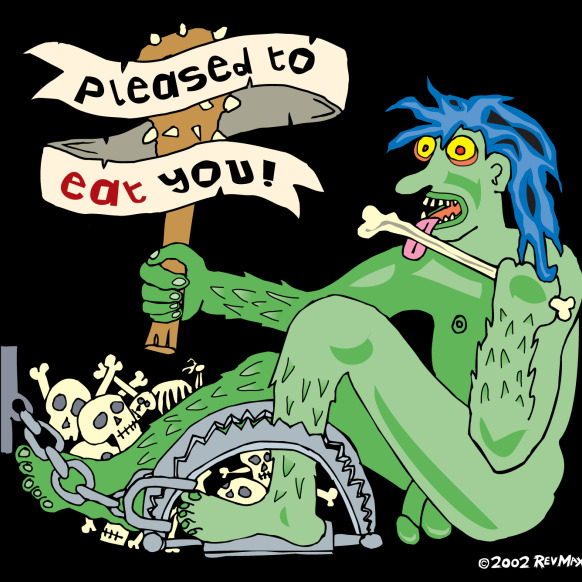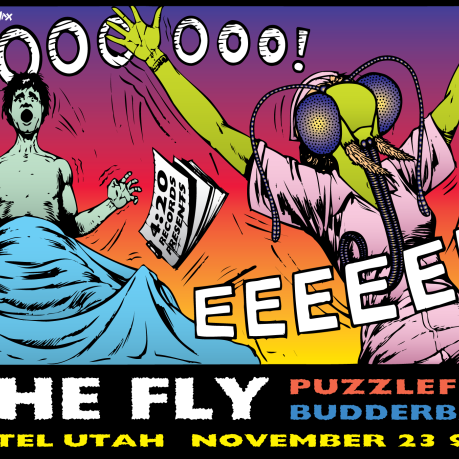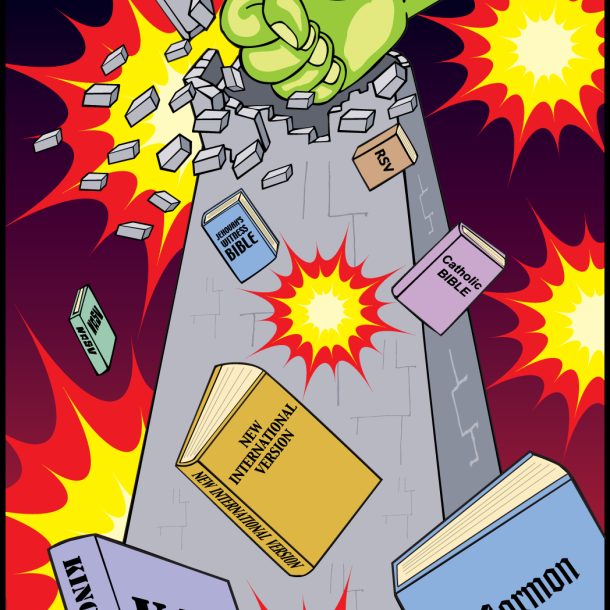Rise of the Nephilim
Adam and Eve’s descendants refused to worship Yaldabaoth, so the Rulers decided to drown humanity in a flood. Noah was chosen to save those loyal to Yaldabaoth; Eve’s daughter Norea set Noah’s ark on fire and escaped when the Rulers tried to rape her. The Rulers descended to the Earth to impregnate the survivors, smash the Tower of Babel, and give Moses the 10 Commandments.
![Yaldabaoth the Mad Scientist "Yaldabaoth was angry with men because they did not worship or honor him as Father and God; he sent a deluge upon them to destroy all of them at the same time. But Sophia withstood him... and saved those who [had] the moist nature of that light which originated from her; through it the world was again filled with men."
"The Sethian Ophites." The Nag Hammadi Library. Ed. James Robinson. HarperCollins, 1978. 663.](https://www.gnosticshock.com/storage/bb-plugin/cache/final_mad_scientist-610x802-square-db9c3e5f82ef4de5488512c2f57ff0f7-.png)
Hidden History of the Flood
Almost every culture on Earth has some sort of flood myth – and the same haunting feeling accompanies them all, the same nagging suspicion that something so traumatic as to be almost unbearable might actually have happened. Intense trauma can sometimes hide itself from awareness by short-circuiting the memory; this may be why so many…

Those Nasty Nephilim
The idea that an omnipotent creator god could callously seek to exterminate an entire species for the sins of a few shocks and outrages the conscience, but the Biblical “flood” had nothing to do with human sin; instead, fallen angels had been skinny-dipping in the human gene-pool: “To theologians and philosophers, it is a fact,…
![The Archons Lie to Norea and try to Rape her "The Rulers went to meet [Norea], intending to lead her astray. Their supreme chief said to her, "Your mother, Eve, came to us."
But Norea turned to them and said: "It is you who are the Rulers of the Darkness; you are accursed. And you did not know my mother; instead it was your female counterpart that you knew. For I am not your descendant; rather it is from the World Above that I am come."
The arrogant Ruler turned with all his might. He said to her presumptuously, "You must render service to us, as did also your mother Eve."
”Hypostasis of the Archons.” The Other Bible. Ed. Willis Barnstone. Harper San Francisco, 1984. 78.](https://www.gnosticshock.com/storage/bb-plugin/cache/exobiology_norea_signed-610x807-square-babe9caa0232c4b3dc7da944c2e52716-.png)
Naughty Norea
It was not Noah who was the hero of the flood story, but Eve’s daughter Norea – a fiery, rebellious young woman who sabotaged Noah’s ark, rejected Yaldabaoth’s lecherous advances and finally escaped on the wings of an angel. Yaldabaoth, the story goes, was so disturbed when he realized that mankind had begun to “multiply…

The Legend of Lillith
The role played by Norea in the gnostic version of the flood myth is in many ways reminiscent of the Jewish story of Adam’s hot-tempered first wife, Lilith. Like Norea, Lilith too is fiery – the name Lilith even means “fiery wind.” According to legend, Adam grew lonely in the Garden of Eden and fell…

The Tower of Bible
Gnostic retellings of Genesis typically wrestle with “problem” passages which seem to anthropomorphize God or assign limits to his omniscience and omnipotence. Perhaps this is why the ancient gnostics made scarcely any attempt (with one isolated exception) to retell the “Tower of Babel” story; the canonical account itself describes the Demiurge’s violent petulance with such…

![The 10 Commandments "...each one of the Seven [Rulers] chose his own herald to glorify and proclaim him as God...
Thus Moses was the prophet of Yaldabaoth, as were Joshua, Amos and Habakkuk;
Samuel, Nathan, Jonah, and Micah were prophets of lao;
Elijah, Joel, and Zechariah were prophets of Sabaoth;
Isaiah, Ezekiel, Jeremiah, and Daniel were prophets of Adonai;
Tobias and Haggai were prophets of Eloi;
Micah and Nahum were prophets of Oreus;
and Ezra and Zephaniah were prophets of Astanfeus."
"The Sethian Ophites." The Other Bible. Ed. Willis Barnstone. Harper San Francisco, 1984. 663.](https://www.gnosticshock.com/storage/bb-plugin/cache/FINAL_god_topus-610x804-square-d26bb61d01dab378d8eff8fb226b5504-.png)